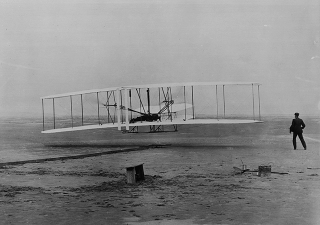
CourseSmart E-Textbooks
Very interesting article, but the comments on the article are even more interesting. In an age where technology is controlling many of our daily tasks, the CourseSmart program tracks usage of its e-textbooks. Pilot-schools have begun to respond to the mass of information that the program provides on the students enrolled using these e-texts. Professors do not understand why or how some students have low engagement scores but have high quiz and test scores in the class. The idea that the article poses is how valuable are programs like this one that tracks students usage and are they accurate. The digital age has opened up a realm of learning that is new and uncharted in a lot of areas and universities and colleges are taking advantage of this technology. The monitoring software from CourseSmart is an attempt to figure out the best way to approach this type of learning.
As a teacher of secondary social studies and history I would have to use the student's success or failure decide whether or not the amount of reading or studying is making a difference. In a middle school or high school classroom e-textbooks will most likely be used soon. It would be an interesting fact to know how often and for how long a student reads their book but I do not think I can base a participation grade off of a computer program's analysis of their usage. Those types of grades will have to be proved by participation and comprehension of online forum threads or in class activities including discussions. Students function and process information in many different ways. This type of student analysis is already being used through standardized testing where assessments take a generalized set of questions and it cookie-cuts a student's knowledge. When school systems focus on these types of test's templates, then creativity has no place. There is no way of really knowing a student's comprehension unless the assessment is a true synthesis test. When a student can understand a concept and apply it to another situation then that is when true learning has been accomplished. Are our current school systems teaching this way?
As a student here at USA I study and accomplish assignments in many different ways and it is not always the exactly the same. I am a non-traditional student with a wife and four children in which the youngest I keep during the day and I attend class in the evenings. I spend the largest portion of my time taking care of the daily life of my wife and children so that leaves small windows of time to complete assignments. Depending on the subject and the task I may or may not intently read in a textbook. Usage tracking software used to determine how often I actively use a textbook may not reflect my knowledge of a concept and I believe it should not be used in anyway of assessing me for that course.
Questions for the teacher:
- How could this concept be used to actually benefit your course and students?
- Anonymously, what are your honest thoughts about the quality of your textbooks?
- Do you give your students a personal survey outside of school required surveys for your own personal improvement?
- How do you engage your students in your course?
- How do you feel by being monitored on your e-text usage?
- If this information affected your grade how would you respond?
- How could this technology be used to benefit you students more?
- Do you prefer digital learning or traditional classrooms? Explain your answer.

My Comment
I understand that the textbook companies are trying to be innovative in an age of technology based environments. Many people thought that the Wright Brothers were crazy for trying to fly like birds and just over a decade later airplanes were used in WWI. So the application of the information they are receiving now will lead to useful technology and service that will improve future education. However, the process of education has to change along with the usage of technology. The way learning is approached now has to change to truly reach students in a rapidly changing world.
Check out this article by Marc Parry and the user comments that are just as interesting as on the other post.
No comments:
Post a Comment